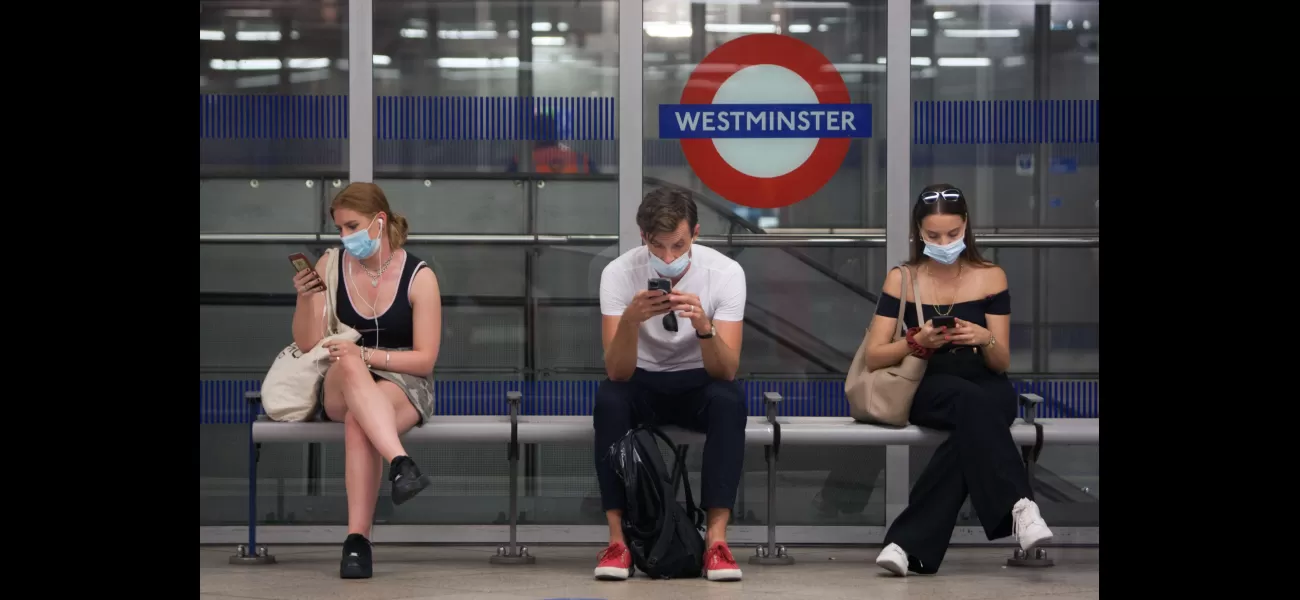Researchers analyze successful Covid lockdown strategies.
Social distancing & masks 'clearly' slowed virus spread.
August 23rd 2023.

Masks have been proven to be an effective measure in helping to reduce the spread of Covid-19. A new report from the Royal Society has found that the use of measures such as social distancing and wearing face masks 'unequivocally' reduced the spread of infections.
The report, called Covid-19: Examining the Effectiveness of Non-Pharmaceutical Interventions, looked at the effectiveness of non-pharmaceutical interventions (NPIs) and their effectiveness when used in a package of measures that complement each other. The experts considered six different groups of NPIs, including masks and face coverings, social distancing and lockdowns, test, trace and isolate, travel restrictions and controls across international borders, environmental controls, and communications.
The report found that when countries use combinations of NPIs, there is evidence of a positive effect in reducing transmission. It also found that NPIs were most effective when the intensity of transmission was low, so it is important to use them early on in a pandemic or when there is a sign of resurgence.
Social distancing and lockdowns were found to be the most effective category of NPIs. Stay-at-home orders, physical distancing, and restrictions on gathering size were associated with a significant reduction in SARS-CoV-2 transmission, and the more stringent the measures were, the greater the effect they had.
Additionally, evidence showed that the use of face masks and mask mandates were an effective approach to reducing infection, and that higher-quality respirator masks were more effective than surgical-type masks. Studies from several countries that implemented contact tracing with isolation of infected individuals and their contacts found reductions in Covid-19 deaths.
The report also recommends that international protocols for conducting clinical trials and observational research on NPIs are established in advance of future pandemics, to be better prepared for any new emerging infectious diseases. Professor Chris Dye, professor of epidemiology at the University of Oxford, said that “we need a system which is generic enough in character to handle anything of that kind, and for me, the number one priority is to have a global system of surveillance response.”
The findings of the report were published in a special themed issue of the journal Philosophical Transactions of the Royal Society A. By looking at thousands of published studies, it is hoped that this report will help inform decision-making in the event of future pandemics.
The report, called Covid-19: Examining the Effectiveness of Non-Pharmaceutical Interventions, looked at the effectiveness of non-pharmaceutical interventions (NPIs) and their effectiveness when used in a package of measures that complement each other. The experts considered six different groups of NPIs, including masks and face coverings, social distancing and lockdowns, test, trace and isolate, travel restrictions and controls across international borders, environmental controls, and communications.
The report found that when countries use combinations of NPIs, there is evidence of a positive effect in reducing transmission. It also found that NPIs were most effective when the intensity of transmission was low, so it is important to use them early on in a pandemic or when there is a sign of resurgence.
Social distancing and lockdowns were found to be the most effective category of NPIs. Stay-at-home orders, physical distancing, and restrictions on gathering size were associated with a significant reduction in SARS-CoV-2 transmission, and the more stringent the measures were, the greater the effect they had.
Additionally, evidence showed that the use of face masks and mask mandates were an effective approach to reducing infection, and that higher-quality respirator masks were more effective than surgical-type masks. Studies from several countries that implemented contact tracing with isolation of infected individuals and their contacts found reductions in Covid-19 deaths.
The report also recommends that international protocols for conducting clinical trials and observational research on NPIs are established in advance of future pandemics, to be better prepared for any new emerging infectious diseases. Professor Chris Dye, professor of epidemiology at the University of Oxford, said that “we need a system which is generic enough in character to handle anything of that kind, and for me, the number one priority is to have a global system of surveillance response.”
The findings of the report were published in a special themed issue of the journal Philosophical Transactions of the Royal Society A. By looking at thousands of published studies, it is hoped that this report will help inform decision-making in the event of future pandemics.
[This article has been trending online recently and has been generated with AI. Your feed is customized.]
[Generative AI is experimental.]
0
0
Submit Comment





